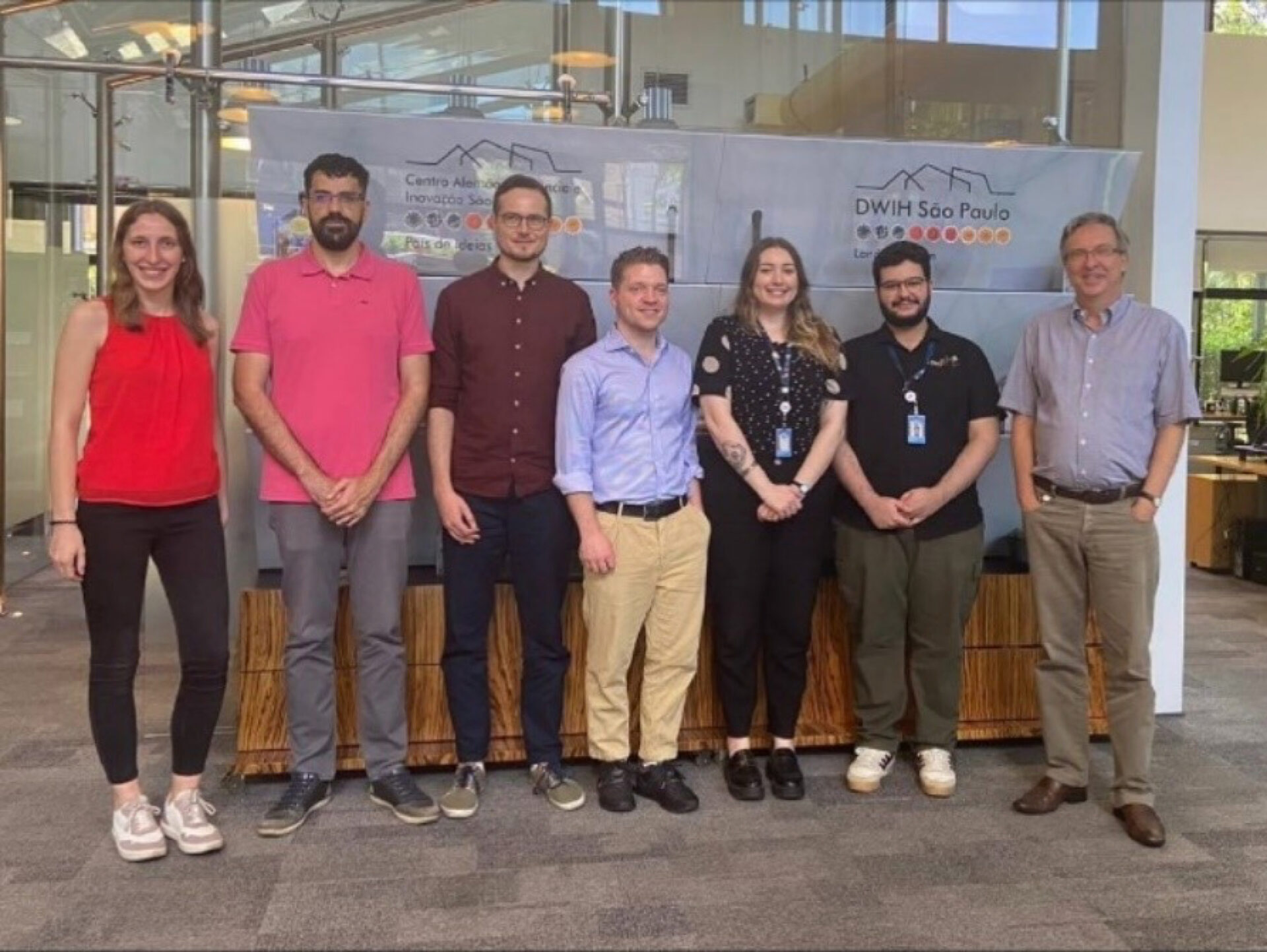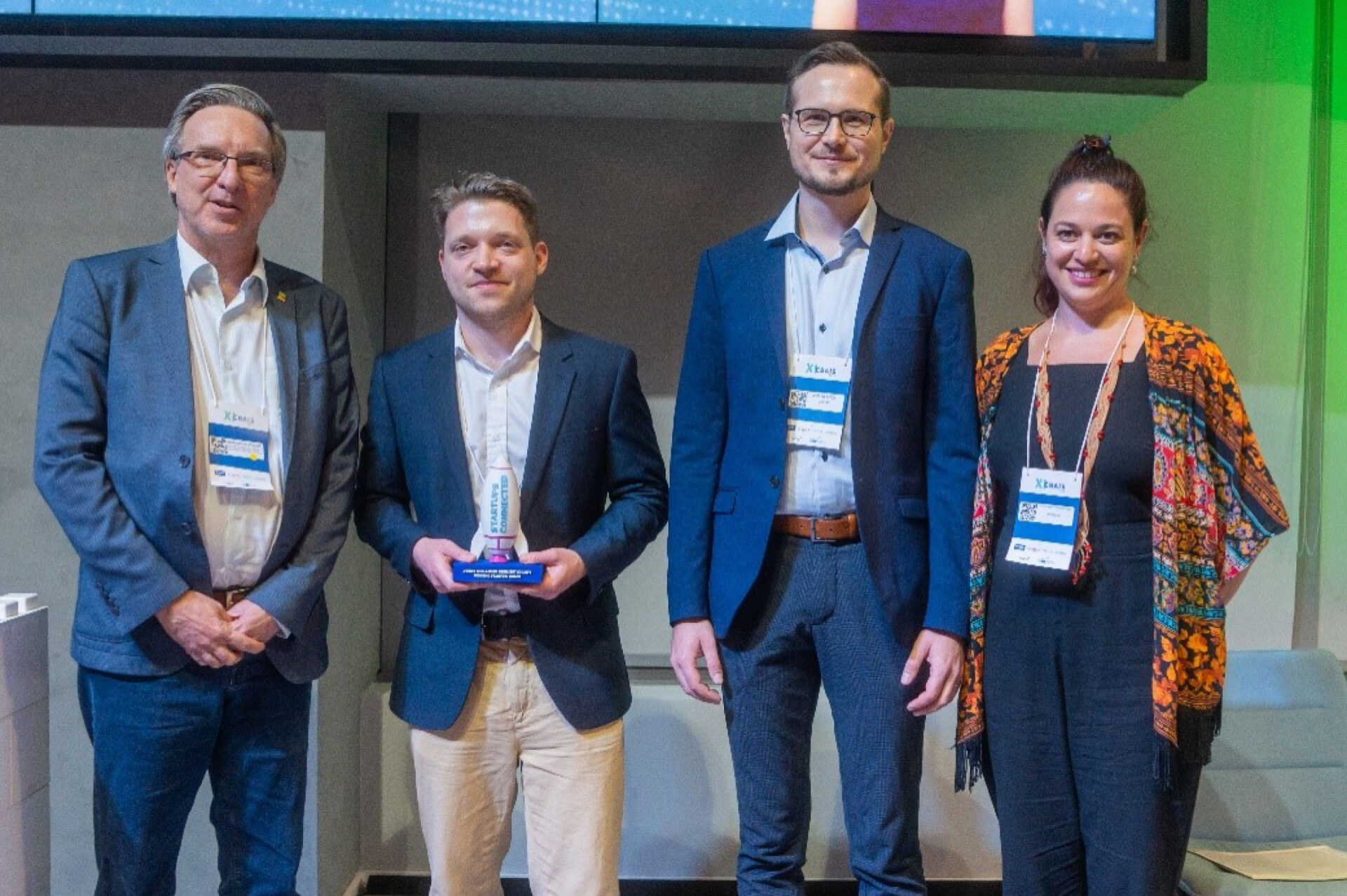The Brazilian economy is the 2nd largest in the Americas (1st USA, 3rd Canada) and has the 9th largest gross domestic product (GDP) in the world, according to the International Monetary Fund (IMF).

The Brazilian economy is the 2nd largest in the Americas (1st USA, 3rd Canada) and has the 9th largest gross domestic product (GDP) in the world, according to the International Monetary Fund (IMF). The country can become a strategic resource for green hydrogen and renewable carbon as feedstocks for COLIPI processes. For COLIPI products, such as Climate OilTM, there is a promising market. The Beauty & Personal Care market in Brazil alone is projected to generate revenue of US$27 billion in 2024 with an annual growth rate of 5% (CAGR 2024-2028), creating a strong demand for oils.
Jonas Heuer (co-founder) and Jan Herzog (Senior Scientist) went on a one-week business trip to São Paulo and Rio de Janeiro in November 2023 to take the first steps in the Brazilian market. The trip was kicked off with a warm welcome by The German Center for Research and Innovation (DWIH) São Paulo, a governmental organization specializing in the internationalization of German research, technology, and startups. On the same day, Jan and Jonas exchanged ideas with a larger biomethane producer on possible collaborations.

On day 2, the team visited production sites and met with senior managers of one of the world’s largest cosmetics companies before attending the 11th Brazil Germany Symposium for Sustainable Development (CBAIS), where Marcio Weichert, Head of Program at DWIH São Paulo, conferred COLIPI the Startups Connected award. Jury member Jochen Hellmann, Director of DWIH São Paulo and the German Academic Exchange Service (DAAD), congratulated:
“I am pleased that COLIPI has won the first place in our Startups Connected program despite strong competition. The company made a strong impression on the jury during the presentation. Both the relevance of the concept and the proposed solution convinced us in the face of climate change. On behalf of the entire DWIH São Paulo, I wish Colipi much success in Brazil, and I believe that the victory will contribute to this success.”

Days 3 and 4 were spent at research clusters with the Brazilian Center for Research in Energy and Materials (CNPEM) focusing on biofuels such as Sustainable Aviation Fuel (SAF). The center is a top research capacity with highly skilled staff and state-of-the-art equipment. Further, they visited the technology center of The Federal University of Rio de Janeiro or University of Brazil (UFRJ). On day 5, COLIPI visited the Research Center for Greenhouse Gas Innovation (RCGI) on The University of São Paulo (USP) campus. As an interface between industry, research, and politics, the center supports the Brazilian government in reaching its climate goals. RCGI is financially backed, among others, by Shell, TotalEnergies, Petrobras, and Braskem.
A big thanks goes to DWIH, namely Thiago Tartaro, Marcio Weichert, and Angelika Unger, and to AHK, namely Ágatha Depiné, for the friendly, professional, and excellent facilitation of this business trip.